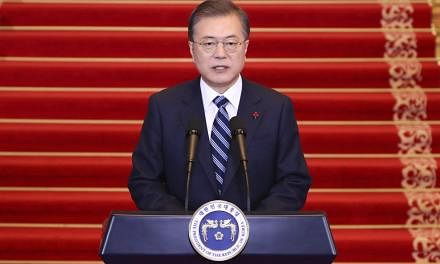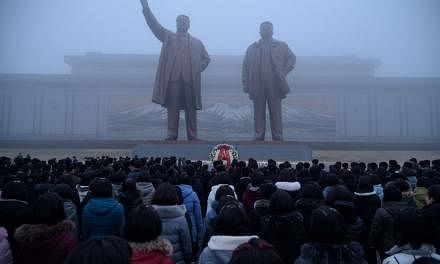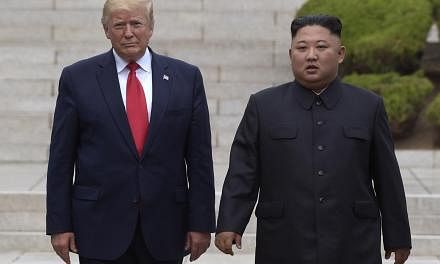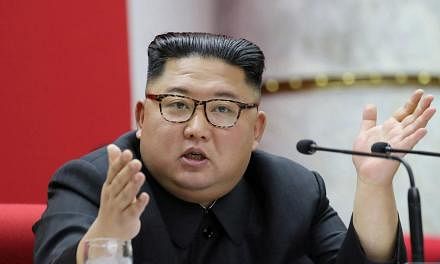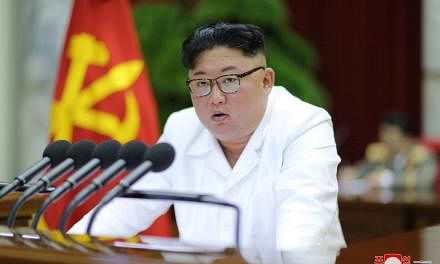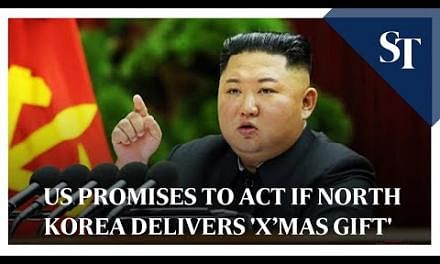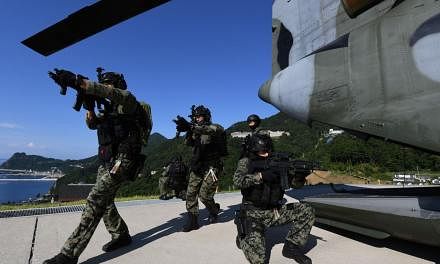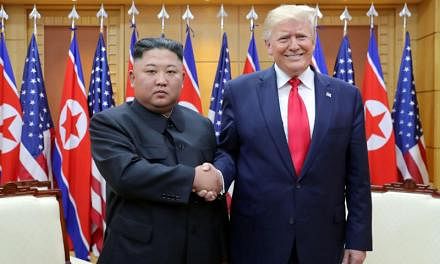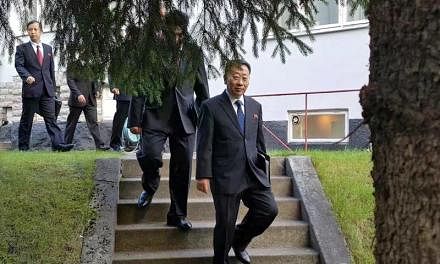SINGAPORE - Singapore is footing the hotel bill for North Korean leader Kim Jong Un and his contingent, Foreign Minister Vivian Balakrishnan said on Monday (June 11).
"It's hospitality that we would have offered them, and as Chairman Kim said yesterday, he would have liked to have come to Singapore anyway, with or without the summit," Dr Balakrishnan said in an interview with the BBC.
Mr Kim, who is Chairman of North Korea's State Affairs Commission, arrived in Singapore on Sunday for a historic summit on Tuesday with United States President Donald Trump to discuss possible denuclearisation efforts.
"We would, of course, have offered hospitality," Dr Balakrishnan added, when asked if Singapore paid for the North Korean contingent's hotel stay at The St Regis Singapore.
He added that the expenditure forms part of the $20 million that Singapore is spending on the summit in all.
Of this, half is on security, said Prime Minister Lee Hsien Loong earlier. Another $5 million, The Straits Times understands, goes towards facilitating the contingent of journalists here, numbering more than 2,500. This includes the setting up of the international media centre at the F1 Pit Building.
In a separate question, the BBC interviewer noted that Mr Kim is notoriously paranoid about his safety and asked what Singapore had to do to reassure him.
Dr Balakrishnan said the North Korean advance team came to Singapore, walked the grounds, checked the hotels and met local officials.
"I think over the weeks that they spent with us, they gained greater confidence that we are sort of no-nonsense but efficient people," he said. "We are good for our word, we are meticulous, we pay attention to details - every smallest detail. All that, I think, gave them confidence that this was the right site, the right choice."
He added: "Because what you want is a conducive site so that their minds are clear to focus on the substantive negotiations. And we have been able, so far anyway, to provide that confidence."
The BBC interviewer also asked whether Mr Kim was willing to come here because Singapore is not known for protests, but Dr Balakrishnan said it had more to do with security concerns.
"I don't think it was about protests, I think it was about security. They know that we can provide their security. And quite frankly, I mean, the same consideration applies for President Trump," he said.
"So, again, let Singapore be Singapore, we do it our way. And the way we do things in this specific instance has been an attractive feature that gave both sides confidence so that they can focus their minds on the real hard work that begins tomorrow."
The summit comes after what Dr Balakrishnan described as 70 years of suspicion, war and diplomatic failures. "This is not the way conventional diplomacy would have been conducted, but perhaps you need two very unconventional leaders to have brought us to this stage," he said.
"They may be able to pull rabbits out of a hat that the rest of us conventional diplomats would not have been able to do."
Still, he noted that decades of tension cannot be resolved in one meeting, although, based on his interactions with their staff and meeting them personally, "both are supremely confident, both are hopeful".
"I think President Trump has it right when he says within that first minute they will know whether they are going to hit it off, and based on that initial goodwill, hopefully openness and confidence will be able to establish a reservoir of trust," he said.
"You see, the most important missing ingredient in all these seven decades is... strategic trust. This is an occasion to start building that reservoir of trust."
As for what he thought brought Mr Kim to the negotiating table, Dr Balakrishnan listed a number of factors, with the caveat that his views are "purely speculative".
These include the North Korean leader feeling that he has achieved his military objectives, and feels that it is "time for economic development". This comes after United Nations sanctions, which have been in place since 2006 and made stricter over the years, and which have constrained the country's trade with partners to a trickle.
On the other hand, Mr Trump has also "been willing to break the taboos and boundaries of the past, and give him an opportunity to meet face to face as equals", said Dr Balakrishnan, adding that South Korea, China and the UN had played a role as well.
"So, as I said, the stars are aligned but we must avoid wishful optimism. And let's just have hope based on a realistic assessment of what could or may not happen."


